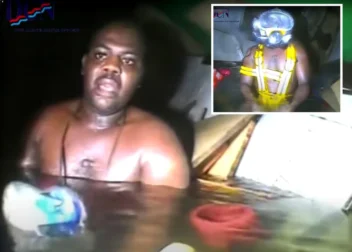Fukushima Nuclear Disaster: The Heroes Who Stayed Behind
When a tsunami triggers a nuclear meltdown, most of us would sprint the other way. Not the Fukushima 50, the workers who stayed behind during the 2011 Fukushima Nuclear Disaster in Japan. Their heroism saved countless lives, despite radiation risks that’d make a Geiger counter scream. If you’re a science nerd or eco-warrior, let’s unpack this epic tale of courage, the disaster’s fallout, and why these workers are the real MVPs. Spoiler: They faced radiation like it was a bad Wi-Fi signal.
The Disaster Unfolds
March 11, 2011: A 9.0 earthquake rocks Japan, triggering a 50-foot tsunami. The Fukushima Daiichi nuclear plant loses power, causing three reactors to melt down. Radiation leaks threatened millions. Most staff evacuated, but about 50 workers—later dubbed the Fukushima 50—stayed to stabilize the plant. They manually pumped seawater to cool reactors, working in near-darkness with minimal food. The nuclear meltdown was the worst since Chernobyl, releasing 10% of its radiation, per IAEA.
The Fukushima 50’s Sacrifice
These weren’t caped crusaders—just regular engineers and technicians, some nearing retirement. They faced radiation levels up to 400 millisieverts (a chest X-ray is 0.1), risking cancer and worse. One worker told NHK, “I thought of my family, but someone had to stay.” Their efforts prevented a full explosion, saving nearby towns. X posts from 2011 hailed them as “samurai,” though many later faced health issues. Their heroism redefined duty in a crisis.
The Long-Term Fallout
The Fukushima Nuclear Disaster displaced 160,000 people, with cleanup costs hitting $200 billion, per Japan’s government in 2024. Radiation contaminated farmland, and 1% of the area remains restricted. Globally, it sparked debates on nuclear safety—Germany phased out reactors by 2023. Japan restarted some plants but now pushes renewables. The disaster showed nature’s power and humanity’s resilience, though X discussions still argue over nuclear energy’s risks vs. benefits.
Lessons in Courage
The Fukushima 50 teach us heroism isn’t always flashy—it’s showing up when it counts. Their teamwork and sacrifice highlight the human side of science. It’s also a wake-up call for better disaster prep and radiation safety. Next time you’re dodging a deadline, think of these workers dodging fallout. Their story pushes us to act with courage, whether it’s saving a plant or just helping a neighbor.
Honoring the Fukushima 50
The Fukushima Nuclear Disaster tested Japan, but the Fukushima 50 turned tragedy into heroism. Their fight against radiation and nuclear meltdown saved lives and reshaped energy debates. Let’s honor them by learning from their courage and advocating for a safer planet. Share this story to celebrate their legacy, and tell us in the comments: What’s the bravest thing you’ve witnessed?



